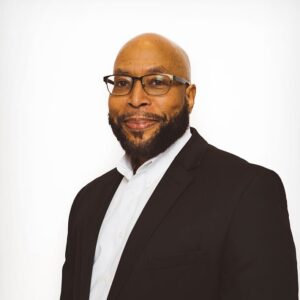People are taking notice of the new cannabis laws and looking for opportunities to build not only a business but also a lifestyle. Traditionally, people of color have felt shut out of the growing cannabis industry because of many challenges facing them from the ‘war on drugs,’ to drug laws and more. Now they are taking matters into their own hands and showing the industry who is boss. Taking the world by storm are several entrepreneurs, men and women, leaving their mark on the cannabis industry.
Building Industry for Black Americans
Even though it has been hard breaking into the industry, many entrepreneurs are finding their place. Cannabis companies are offering more jobs, training, and compensation to African Americans. Considering they make up a meager 4.3 percent of stakeholders or owners in the industry, there is room for exponential growth. When thinking about giving back, entrepreneurs are looking to not only build an empire but also recruit, train, and lift up other people of color on the way up.
Al Harrington: CEO Viola Brands
Al Harrington is the CEO and co-founder of Los-Angeles based Viola Brands. Harrington is a former NBA player for teams like the Denver Nuggets and New York Knicks. After 16 years, he retired to start a new career in cannabis. After seeing the benefits to his grandmother, Harrington decided to keep reading up on the benefits of cannabis which led him on a much bigger journey than he ever expected. Viola Brands was co-founded in 2013 and now boasts over 100 employees in four states. Revenue is expected to be around $35 million this year alone. Harrington is enthusiastic about his nonprofit Viola Cares and their efforts to serve the black community with food drives and turkey giveaways. Through the Los Angeles social equity program, they set aside cannabis licenses for people of color who need funding and help mentor them through an incubator to get them started on their own business. Viola Cares also partners with Root & Rebound to help formerly incarcerated persons gain re-entry into jobs and apartments typically found more challenging after incarceration. Harrington’s goal is to give more people of color opportunities and a seat at the table to grow in the industry.
Joshua Green & Samuel Adetunji: Co-founders of Veriheal
Young entrepreneurs Joshua Green and Samuel Adetunji co-founded Veriheal in Denver, Colorado, a medical-cannabis cards service platform. The duo started in D.C. delivering cannabis to consumers across the city of Washington. Many consumers inquired about medical card access. From there, they decided they had a bigger audience in this industry. Veriheal was founded in 2017 to educate consumers. They enter info on the platform to connect consumers to in-network doctors. The platform charges a fee and the medical card is issued via mail or directly to the doctor’s office. The platform has over 2 million users per year and helps the black community connect legally to cannabis while educating consumers on the many benefits.
Mary Pryor: CEO of Cannaclusive
Mary Pryor got into cannabis to help with a medical condition Western medicine could not help. Crohn’s disease was causing her hair to fall out and skin to break out along with a host of other medical challenges. She moved to LA and discovered she had more energy and access to cannabis. Few black people seemed to be involved in cannabis which got her thinking. She started with authentic representation of black people in the industry by doing a photo project. Out of it came free stock photography for use on social channels and encouraging more connection to the C-suite for black people. Cannaclusive was created to bring fair representation to the forefront for minority cannabis consumers.
Khadijah Adams: Co-founder C.E. Hutton
The war on drugs has taken a toll on people of color, especially in the cannabis industry. Helping them make breakthroughs are women like Khadijah Adams, co-founder of C.E. Hutton Out of Denver. Her goal is to give minority entrepreneurs tools to be successful when joining the cannabis market. The company helps black owned companies launch. Because racial injustice permeates the cannabis industry, diversity and inclusivity in ownership is even more important. The black community is ready to engage and excited to grow in the cannabis industry as leaders. Khadijah is helping people in her community access capital and business development opportunities to break down barriers to success and support their businesses.
Mary and Main aims to help educate consumers on products and services they can access in Maryland. Contact us to find out how we can help you select the best products for your situation.




